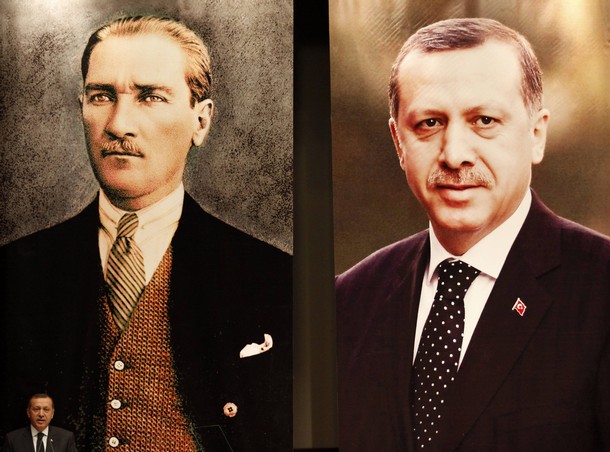
From Soner Cagaptay, the Washington Post: It took a century and a democratic revolution invoked by the Justice and Development Party (AKP) — a coalition of conservatives, reformed Islamists and Islamists that came to power in 2002 — for Turkey’s “Kemalist Occident,” or dalliance with the West, to end. With the mass resignation of Turkey’s military leadership last month, the last standing Kemalist institution, the army, has succumbed to the AKP’s decade-long political tsunami. . . .
The military was the final institution of Kemalism. Since 2007, a court case known as Ergenekon, which alleged that the army was plotting a coup against the government, has crippled the military’s power. The army has been criticized for allegedly planning a vicious takeover bid and accused of planning to bomb Istanbul’s historic mosques to precipitate a political crisis. Although the assertions remain unproven, the effects are clear: The military’s status as the country’s most trusted institution is plummeting. In 1996, 94 percent of Turkish respondents to the World Values Survey said they trusted their military, while in 2011 the same poll found that barely 75 percent do.
Recognizing this and the AKP’s dominance, the military leadership threw in the towel on July 28. . . .
In foreign policy, a Turkey satisfied with its Islamic identity would stop considering itself intuitively Western, especially given the resonance of the notion of a politically defined “Muslim world” since the Sept. 11, 2001, attacks. This means an increasingly tense relationship between Turkey and NATO, the symbol of all Western institutions. It also means that Turkey will be open to all sorts of non-Western dalliances. An AKP decision to buy Russian weapons, say, or invite the Chinese to a joint naval exercise in the Mediterranean would be applauded by Turks, including the military.
For a century, the Turks emulated Ataturk because his political descendants controlled all power. Now, it is Erdogan’s turn. He has a vision and controls all levers of power. Time will tell how far he is able to shape Turkey in his conservative design.
The writer is a senior fellow at the Washington Institute for Near East Policy. (photo: Reuters)
Image: reuters%208%2015%2011%20Erdogan%20Ataturk.jpg
